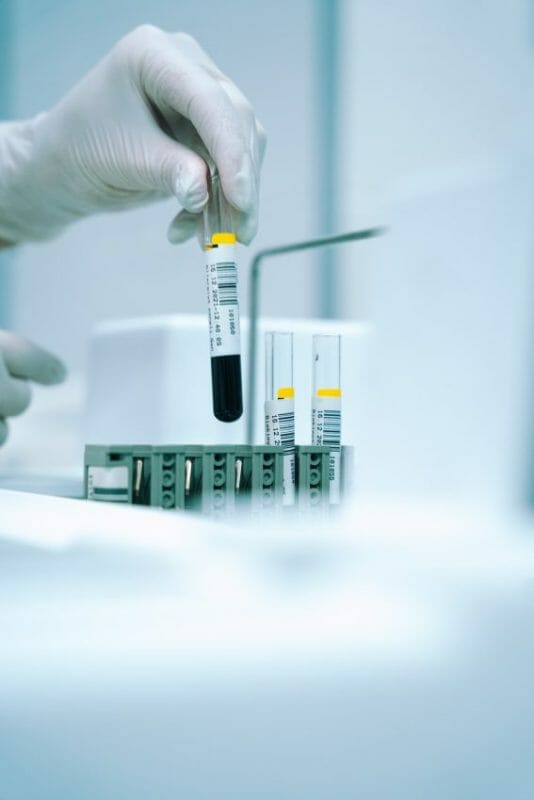The future of managing labs does carry challenges and risks. However, overall there’s good news for healthcare professionals, the labs themselves, and the many lives it will impact. Below is a general summary of what to expect.
Key Challenges Faced by Healthcare Organizations in Lab Management
It’s important to have realistic expectations of what the industry faces. This can help laboratories plan appropriately and sidestep unnecessary problems.
Resource Optimization
As in most industries, managers have a continual challenge of using resources appropriately. This relates to the workforce as well as all other resources the lab work requires. Without optimization, outcomes include low efficiency, high costs and other unnecessary drawbacks.
Technological Advancements
Many tech advancements can benefit the workflows, accuracy and other aspects of a laboratory. However, it requires capital to acquire modern technology. Also, you need to onboard your team to efficiently use it. This requires time, money and effort that a busy lab team may find difficult to sacrifice.
Data Management and Security
Keeping data secure is essential for lab management, and it’s getting increasingly difficult. There’s always the threat of cybercrime, so labs must implement appropriate cyber security. In addition, laboratories must review privacy laws that change from time to time, to ensure they stay compliant. All of this takes money, time and effort.
Predictions for the Future of Lab Management
Labs need to have long term plans to stay competitive and meet expectations. Here are trends to consider in your business plans.
Integration of AI and ML in Lab Processes
AI and Machine Learning can help with important processes like medical image analysis, detecting neurological disorders and even customizing healthcare for an individual through predictive analysis. It’s essential for labs to incorporate this tech—to stay competitive AND be empowered to help people optimally.
Digital Lab Management
Immerging technology helps create and improve tools such as lab management software and even the ways patients can engage with professionals in the medical sphere. Therefore, labs can optimize functionality through digitization and deliver higher quality service.
Advancements in Diagnostic Testing Technologies
As mentioned, there are new approaches to diagnostic testing, including the use of AI and ML. Tech can even lead to a decrease in costs, such as when using Big Data for analysis.
Internet of Things (IoT) and Lab Connectivity
Technology in the form of IoT—even IoMT, the Internet of Medical Things—continually change how labs engage with other role players. From healthcare professionals to patients, all parties are connecting with each other with minimal effort compared to just a few years ago. Instant access to information such as lab results enables a higher level of service delivery overall.
Data Management and Security
Technology has made data management easier, and currently there’s a surge in implementing automation features as part of these workflows. This affects efficiency and with fewer manual tasks and human errors, it also helps to ensure accuracy of information.
Cloud technology is another focus area, requiring laboratories to find an alternative to on-site data servers. Furthermore, companies are leveraging the power of AI in this sphere. Using this technology to analyze data on hand can help make accurate predictions, which can help patients and the healthcare system at large. The speed at which AI can perform data analysis tasks also makes it a valuable resource.
Collaboration and Telemedicine
Technology is bringing together parties on virtual platforms. More people are getting access to quality healthcare thanks to telemedicine. Also, service providers in the healthcare industry, including laboratories, can engage with each other easily, resulting in more efficient collaboration and reaching goals much faster.
Furthermore, good news for labs is that clinical laboratories can obtain a new revenue stream thanks to changes like these. For example, certain tests can now be done with labs and patients engaging with each other, even without a healthcare professional’s guidance. Consumers appreciate this as it can lower costs for them.
Trends Shaping the Healthcare Industry and Their Impact on Lab Management
The functionality of a laboratory must align with the needs of other role players, whether it’s patients or healthcare practitioners. Therefore, changes taking place in other parts of the healthcare industry also impact lab management.
Value-Based Care and its Effect on Lab Prioritization
To ensure optimal value for patients, accuracy, efficiency and the speed of service delivery are all becoming more important. This can lead to healthcare practitioners preferring to use labs that can deliver according to their expectations. Labs that use outdated systems won’t be able to compete or satisfy clients anymore.
Patient-Centric Approaches to Lab Services
In a patient-centric approach, healthcare teams focus on providing optimal care at the most affordable price. Labs must advise on and implement only the necessary testing. Such an approach prevents excessive costs and processes while still supplying physicians with the feedback they require to plan effective treatments.
To be able to do this, laboratory teams need to engage with the healthcare team to understand the context of testing.
Regulatory and Compliance Landscape in Lab Management
To avoid being disqualified from being used by the healthcare industry, a laboratory must stay compliant with regulations. There are many areas of compliance to consider, including data management, procedures, waste management and more.
To Wrap Up!
Thanks to innovation, even more lives can experience the positive impact of modern healthcare and technology. And lab management is part of the foundation of that system that brings it to the masses. But it’s clearly vital in laboratory management to stay on par with industry trends if you want to ensure your company keeps impacting lives.
